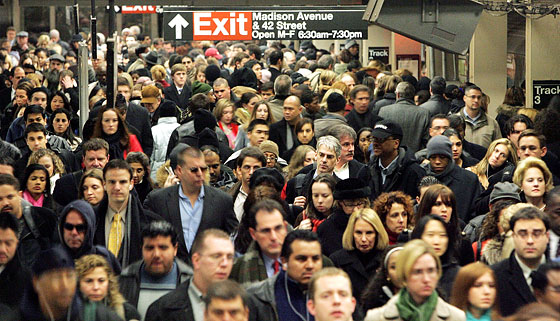Singapore — the lion city — always tops the list for the best country for expats. The report comes from HSBC which has again named the Lion City as the best place in the world for expats to live, after surveying about 27,000 people who rated 45 countries on subjects like salaries, experience and family. More than 60% found Singapore helped their career progression and that their earnings rose after moving to the country. The survey found the average annual income for Singapore expats was $139,000 (USD), compared to $97,000 in the rest of the world. And 66% also said that Singapore offers a better quality of life than their home country.
While all of this seems enticing, there are still caveats to living here. If you’re curious or planning to move to the city, here are some of the things you need to know and consider before taking the plunge to move or take an assignment to work here.
Cringe-Worthy Taxes
Probably one the things Singapore is well known for is just how difficult – and expensive – it is to own a car there.
Expats who want to buy a car better be prepared to shell out a lot of cash. A Toyota Camry, which retails for $25,000 in the US, goes for $145,888 Singapore dollars ($107,124).Why the exorbitant cost? Incredibly high car-related taxes.
From our partners:
First there’s a registration fee based on the “open market value” (OMV) of the car. According to Dollars and Sense, a Singaporean personal finance site, you could pay S$60,578 extra on a Mercedes E200 with an OMV of S$49,113. Then an excise duty is charged, which is 20% of the OMV, plus a 7% GST (Goods and Services Tax) on top of that.
Last but certainly not least, — the creme de la creme — is the certificate of entitlement (COE). Your COE cost is based on the type of car – the larger and more powerful the engine, the more expensive the COE – and how many people want COEs at any given time. In some cases, this payment can be more expensive than the car.
Singapore simply doesn’t want too many cars on the road, says Priscilla Ng Yi Xian, a born and raised Singaporean. It’s a small country, she says. “They want people to use public transit.”
She doesn’t own a car, but may buy one when she has kids. For now, Uber works just fine. “It’s simple”, she says. “I call a cab.”
Overwatch
Since 2012, more than 52,000 police cameras have been installed on 8,600 blocks, according to the Straits Times, a Singaporean newspaper. The police say they were installed to help deter littering, loan shark harassment and illegal parking.
Flora Chao Lutz, a DC native who moved with her family to the city for work doesn’t mind the cameras – she thinks they’re meant to keep people safe – but her two young children do find it odd. “The kids try and put their hand to the cameras and block them,” she says. “They don’t like it, but I prefer the safety.”
Food – Delicious And Cheap Food
Come lunch or dinner time, hawker centers spread across the whole city to cater to every gastronomical whim any food-goer might have.
There’s a good reason why people love these places: there’s a vast array of dishes from all over the world, and the food is really cheap. Meals typically cost between S$3 and S$7 (about $2 to $5).
New comers take heed and be wary of tissue packets placed on empty seats. It’s a practice called ‘chope-ing’ – in other words, it’s how Singaporeans reserve their table when they stand in line to order.
“If you move it, someone will come across the room and let you know that it’s their seat.”
Always Being In “The Know”
There is a certain type of social anxiety that Singaporeans take to heart and elevate to a higher level of importance. Much like the rest of the world, they never want to miss out on “what’s new”.
That fear actually has a name in Singapore. It’s called kiasu, a Hokkien word which means “afraid to lose out” in English. Essentially, when a new restaurant or apartment block opens, people clamour to be the first to check it out and they’re willing to wait for hours to get in. “The lines are crazy insane,” says Shally Venugopal, an entrepreneur based in Washington DC who was born and raised in Singapore with expat parents.
“People try to outdo their friends.”
Singaporeans are always trying to get ahead, Venugopal says, and many want to be seen buying the latest property, at the big concert or eating at the hot new restaurant.
Many Singaporeans are worry about falling behind their peers. “People try to outdo their friends”.
That often means trying to get their children into the most prestigious schools, or buying homes in the best neighbourhoods.
For expats, this mostly means actively avoiding the things that everyone’s talking about. Even popular hawker centre stalls can get mobbed – in July, long lines formed at two different stalls the day after each received a Michelin star.
Be Jolly. Wear Pink.
While most expats have many of the same freedoms as they do at home, LGBT people do not. Being gay or lesbian is not illegal, but homosexual activity is, punishable by up to two years in prison, however, it’s not enforced, says Yangfa Leow, a registered social worker and executive director of Oogachaga, an LGBTQ counselling and support service in Singapore.
Same-sex marriage and civil unions are not allowed, and foreign same-sex marriages are not recognised by Singapore, and this can be an issue for gay expats who want to enjoy the country, says Leow. A non-working partner would not be granted a dependents’ visa, which means that they wouldn’t be able to stay in the country.
“The only way that same-sex partners would both be allowed to stay in Singapore is for both to have employment visas.”
All told, though, gay Singaporeans and expats can live their lives how they want. There are gay bars, clubs and a large gay pride event called Pink Dot, where LGBTQ people, wearing pink, gather in a park and form a pink dot in support of diversity and inclusiveness. Foreigners, however, are not permitted to take part in protests in Singapore so would not be allowed take part in the actual forming of the pink dot.
Leow does say, however, that gay women and transgendered persons are less visible and “for reasons of comfort and safety, may prefer to socialise in more private spaces.”
This feature’s source came from BBC.























